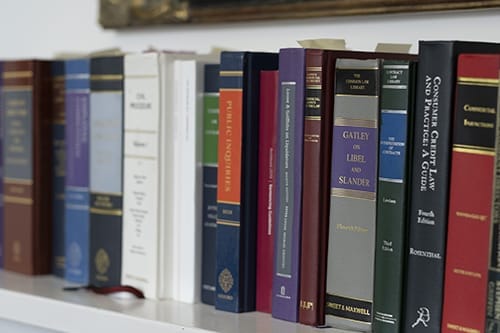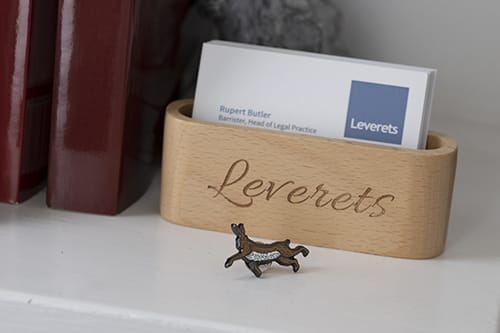Last Tuesday, the Business and Trade Parliamentary Select Committee heard evidence from the former Chair and CEO of Wilko (Lisa Wilkinson and Mark Jackson). One of the highlights of my career was advising the former directors of Thomas Cook on their appearance before the BEIS Parliamentary Select Committee in 2019. I was therefore very interested to follow Tuesday’s hearing, and wanted to share some brief advice on the process and how to prepare to give evidence to a Select Committee.
In recent years, we have seen many people giving evidence to Select Committees, from the directors of insolvent companies to auditors, insolvency practitioners and cricketers. Wherever MPs consider an issue is in the public interest, they have a broad power to call on people and organisations to give evidence. This may follow a significant corporate collapse or scandal in public life, such as the allegations of racism in English cricket.
Select Committees can act much faster than Courts, inquiries or insolvency practitioners. As such, often the dust has not settled and the issues are still raw. This can lead to a febrile atmosphere, with huge attention from the press and media.
So, what should you do if you are called to give evidence?
If you want justice, you’ve come to the wrong place
The most important thing to appreciate is that this is not a legal process. It is far from forensic and it is far from fair.
MPs are not there to get to the truth, to give a legal remedy or even to ensure a just process. They are there to get good soundbites and advance their own political agendas. They are in broadcast mode.
Accordingly, we see examples of Select Committees haranguing the former directors of insolvent companies, so that MPs can be seen to be holding perceived wrongdoers to account.
For example, on Tuesday, Andy McDonald, Independent MP for Middlesborough, demanded to know whether Wilko’s directors agreed with a quote from an unnamed source in the Sunday Times that the company had collapsed due to “naivety, incompetence, a failure to listen and stubbornness”.
Several times, Lisa Wilkinson’s answer was “what do you want me to say?” – the reality is there was nothing she could say to assuage the anger of the Select Committee, which showed a distinct lack of interest in the financial or legal details, such as the way pension fund deficits are calculated, why you cannot just tear through the corporate veil or why it wasn’t the auditors EY’s job to advise on a potential CVA.
The Wilko hearing showed how other political agendas come into play: from wider gripes about the audit industry and whether the Big Four need to be broken up, to arguments about the effect of the Kwasi-Truss mini-budget. One MP even suggested Wilko’s collapse represented a “failure of raw capitalism”.
Quite simply, Select Committees often call people to criticise them rather than listen to them.
Should you even attend?
Given invitees are often there to be berated for their mistakes (or perceived mistakes), if you are called on to give evidence to a Select Committee, you may consider whether you should attend at all.
As far the law is concerned, MPs claim the power to send for “send for persons, papers and records”, which can be enforced through a formal summons if necessary. Ultimately, if a person fails to attend, the House of Commons claims the right to give them a criminal sentence for contempt. However, any finding of contempt would almost certainly be incompatible with the right to a fair trial, and therefore fall foul of the Human Rights Act and European Convention on Human Rights. No-one has forced the point in recent history and in practice, Parliament is unlikely to exercise this archaic power.
Nevertheless, the law can only get us so far. Refusing to attend a Select Committee to give evidence would play very badly with the Select Committee and in the press, and may attract much more scrutiny over a longer period than simply attending.
Directors or other invitees may also wish to take the opportunity to give their side of the story in a public forum – even if they know they will not get a fair hearing – or to apologise.
How to prepare
Anyone invited to give evidence before a Select Committee should immediately seek legal and public relations advice. Lawyers and PR advisers will help you to consider the following points.
- Should you make an opening statement?
It may be appropriate to give an opening statement to allow you to get on the front foot and say what you want to say without interruption. Most Select Committees seem to allow a short opening statement, but you would need to ask the permission of the Chair.
An opening statement provides an opportunity to set the tone and – if appropriate – to say sorry early on. On Tuesday, Lisa Wilkinson did not make an opening statement. Instead, she was invited to apologise. She expressed her “devastation” (and in effect apologised), but this was not judged to be sufficiently contrite, and she eventually used the word the Select Committee was after. It would have been better to have said sorry straightaway in a statement.
- Know your numbers
It is vitally important to have the key figures at your fingertips and to be able to recall them quickly: profit, dividends, pay and pensions. While Lisa Wilkinson did eventually explain the profit and dividend figures for 2014-2022, the Select Committee preferred to use broad brush figures from either 2003-2022 or 2019-2022 to paint the picture of corporate greed they wanted.
Ms Wilkinson’s detailed comparison of dividends, pension contributions and investment (which showed significantly greater pension contributions and investment than dividends) did not cut through, and she was forced onto the back foot by the vague figures thrown at her.
- Prepare and practise
Witnesses should thoroughly prepare for the types of questions they may be asked and consider how they should answer. This is likely to include the legal and PR teams drafting questions, helping you to consider how to answer and digging out any information you need at your fingertips.
It is also vital that witnesses carry out a mock Select Committee session, so that they can get used to answering questions under pressure, and responding to curveballs.
- Get media training
If you have not received media training before, it may be worth arranging this with your PR advisers. It is trite that we all pay more attention to how someone says something rather than what they actually say.
It will be particularly difficult to come across well under the stress of the Select Committee’s spotlight. Make sure you are coming across as you hope you are.
It could be you…
For all the shortcomings of these hearings, Select Committees are not going to stop asking people to give evidence any time soon. Anyone who runs or owns a significant company, or has another prominent role in public life could end up being asked to give evidence. While the cards will often be stacked against you, there are things you can do to make the process as smooth as possible.
We at Leverets would be very happy to hear from anyone who has been called or may be called to give evidence before a Select Committee. We are a blended practice of barristers and solicitors with over 30 years’ experience in disputes.








